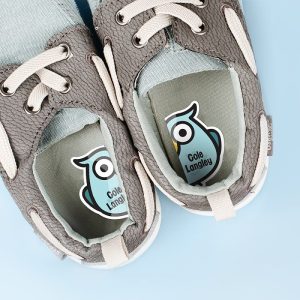With our kids starting school in just over a month, many first-time Kindie moms are beginning to feel like they can’t be prepared enough for what is about to happen. From the emotional rollercoaster, the school lunches, routine changes, worries about our kids’ making friends, eating their lunch, and all the other elements of independence they’re about to embark on. It’s hard to know where to begin with getting our kids prepared. Here is how to prepare for Kindergarten; tips from a teacher and mom.
The only thing most of us know for sure is we’re about to be a sobbing mess on that first day of school. Have I prepared my little one for this?
We asked Kindie parent and teacher, Ms. McNulty, what tips she would give to other parents. What does she expect kindies to know on the first day of class, and how she’s preparing her own daughter for school?
We’ve broken her top tips down into skill sets, and some typical concerns parents have about sending off their kids.

SELF-HELP SKILLS
Dress themselves (in case of accidents)
Your child should be able to dress themselves in their spare clothing. Elastic-waisted clothes are best, pant buttons are too tricky, and the teacher may not be available to help immediately. Undoing a button on their pants when desperate to pee will not end well.
Shoes
Slip on are best! Even if they can tie, slip-on is easier (a pair for inside and outside). The left-right shoe labels are great for getting them to put their shoes on the correct feet!

Using different toilets
This sounds weird, but many kids feel nervous about an unfamiliar toilet. So, practice using various toilets when you’re out and about to get them more familiar with it. Plus, many kids leave it until the last possible moment to use the toilet, and any hesitation or delay can lead to an accident.
Wiping their own nose
The first few months of kindergarten will be snotty. It’s important to send your child with tissues and ensure they know when they need to blow (tricky) or at least wipe their nose. The teacher can’t spend all day wiping 30 noses.
Opening their own lunchbox
Practice using the lunch box and containers with your child the week before school
When teaching your child some of these skills, keep this great tip in mind for supporting them in learning:
I DO – WE DO – YOU DO
You show them how to do it, then do it together, hand-over-hand or using as much oral encouragement and direction as needed. Then when you feel they are ready, they can do it independently, with zero support from you.

SOCIAL-EMOTIONAL SKILLS
Taking turns
Taking turns doesn’t come naturally, so practice and play games where you have to take turns. Take turns with who goes first, too.
Learning how to lose
We like to let our own children win, but that won’t be the case in school with 30 other students. So work on being a good loser. Using words like – wow, what a good game! I am so proud of you for winning (when you lose), and it’s important to then have your child lose at the game too.
Allow them to have those big feelings and talk to them about it. I can see you are really upset that I won. It can be hard to lose, but we still had such fun playing! Let’s play again and see what happens!
Making friends
Kids at this age are adaptable, so don’t worry if your child has never been in a scenario like a school before. By the end of the first week, most children will have met some friends (though they may not know their names!)
If you feel like your child still hasn’t met any friends, mention it to the teacher. They can keep an eye out in class to see what is going on and help to facilitate some friendships.
ACADEMICS
Getting ready for school can seem scary, but know that academics are the area of the least concern. Kids arrive at school with many different levels from being able to read to not being able to recognize their own name. Don’t stress out about academics. Your child’s teacher is well prepared to help each child learn.
However, if you do want to work on your child’s academic skills beforehand, here are a few things you can do. Note: Make these tips seem like play!
Recognize their name
This helps them be more independent from the get-go. From finding their cubby to spotting their labels.
Work on segmenting easy words
CAT – /c/ /a/ /t/ You can do this while reading a story and just sound out a word and have your child tell you what it is. Play a game where you say the /d/ /o/ /g/ goes woof – and have them tell you the animal.
Rhyming
Rhyming is tricky – have your child tell you if two words rhyme or not, then you can move on to creating their own rhyming words.
TIPS FOR PARENTS:
Now that we’ve prepared our kids, here are a few tips to prepare ourselves for the first few weeks of school. Some aspects may catch you off-guard but are totally normal- so be prepared for what to expect will allow you to worry less when your child tells you absolutely nothing about their day!
What happens in Kindie stays in Kindie
Or so it seems. Kids are often too tired and hungry to talk about their day. In addition, the transition between school and home can be tricky for them developmentally; their days are so busy that they sometimes don’t know where to even begin, and talking about it can be arduous work.
Don’t ask- how was your day. Instead, try using specific questions like, Who did you sit next to at circle time? or Did you make a craft today?
They’ll be exhausted.
At the end of each day, your kids will be exhausted! Give them the time they need after school to recover. Aim for a decent bedtime and don’t overschedule them
They may get hit
The first time a parent hears “hit me,” it’s alarming. But be aware that kids are kids, and minor disagreements will happen; it’s how they handle it that is important. Some kids have a hard time containing excitement, and accidents can happen. However, it’s often innocent and not worth contacting the school (Unless, of course, it happens more than once, or you see marks or a bruise)
They will lose stuff.
There is so much happening during the day that keeping track of where their stuff is simply isn’t a priority for kids. Labeling all their items will help the teacher get the lost property back into the hands of the owner.
They will break down.
After-school restraint collapse is a real thing! If your child is experiencing significant breakdowns after school, this is why!
Finally, you’ll be shocked at the skills your child comes home with. They mature so much in their first years, and although it’s hard to watch your baby grow up, it’s also beautiful to see.
For teachers looking for ways to earn funds for your classroom supplies, check out this Fundraising Program – a favorite with teachers and parents. Parents purchase kids name labels, and 20% commission goes back to the school or classroom!

